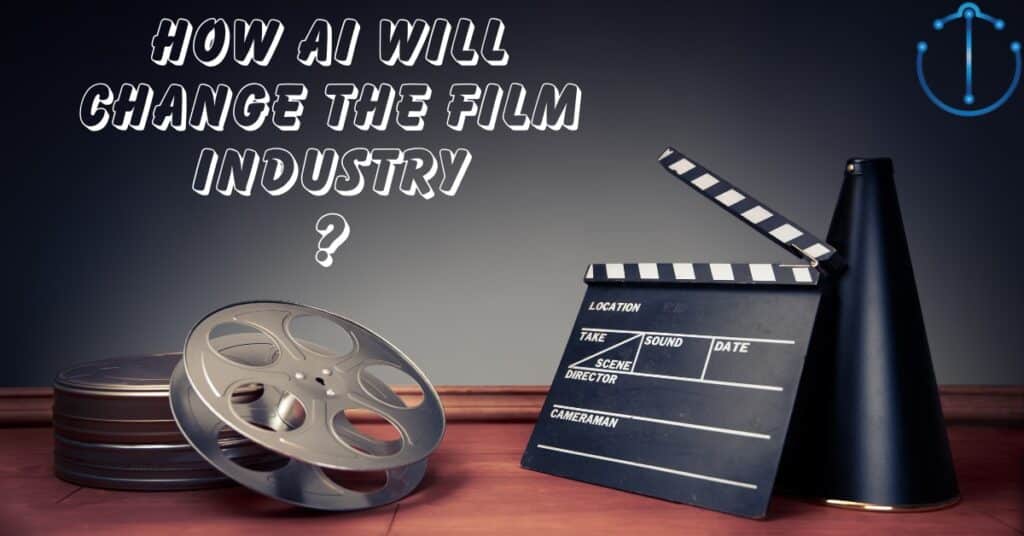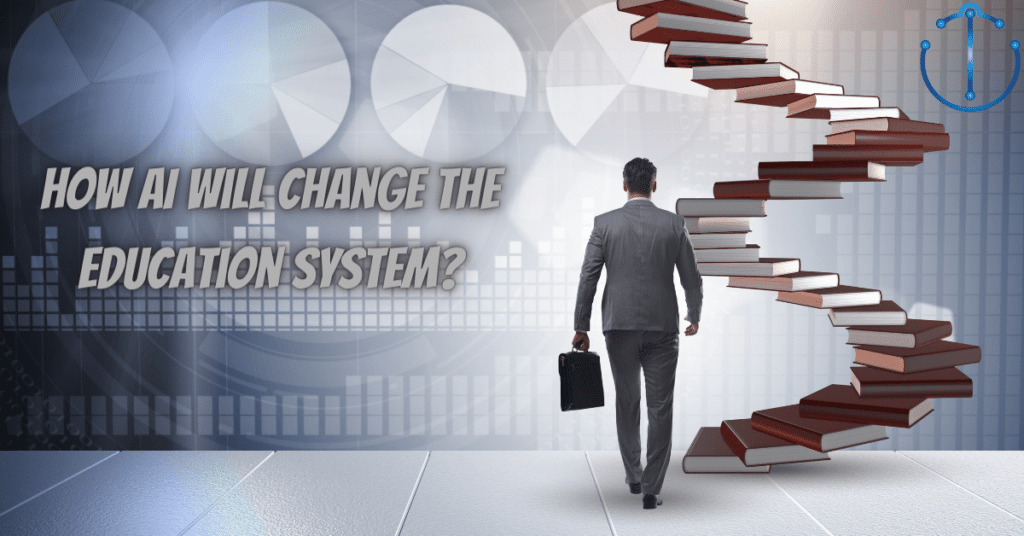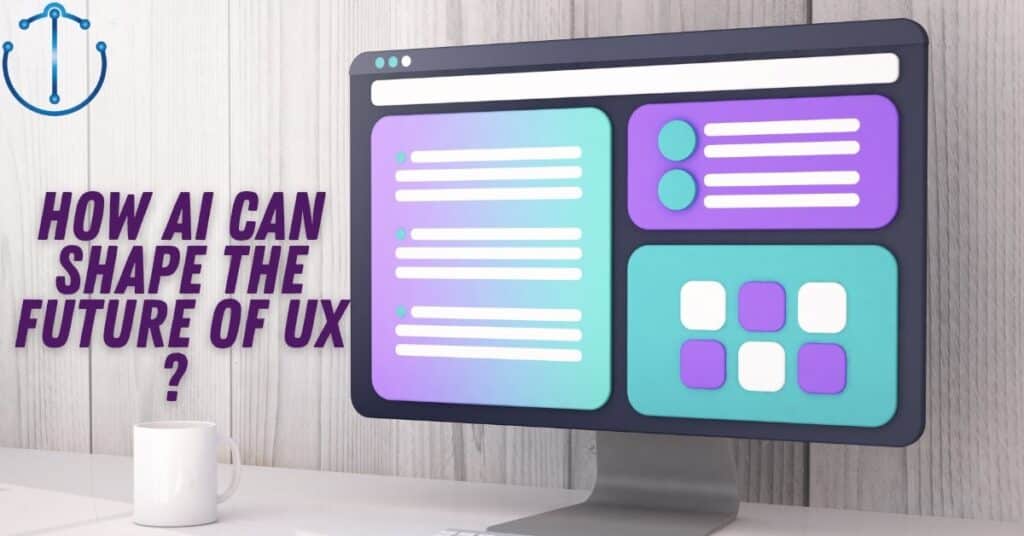The transformative wave of AI innovation has touched every industry, and the film industry is no exception.
With AI’s current market worth standing at an impressive $136.55 billion, and a projection of 37.3% CAGR from 2023 to 2030, the impact on the film industry is undeniable. (Source)
But the question that comes to mind is;
How AI Will Change The Film Industry?
In this article, we’ll explore how AI’s integration will shape the future of filmmaking, delving into its potentially transformative effects.
Table of Contents
AI in Film Industry
Artificial Intelligence (AI) in the film industry refers to the incorporation of AI technologies and machine learning tools in various aspects of filmmaking, from visual effects to scriptwriting, marketing, and even content generation.
Historical Journey
Many people might think that AI integration is a recent event in the film industry, but that is simply not true. In fact, AI has been playing a fascinating role in filmmaking for several decades.
It all began with the emergence of Computer-Generated Imagery (CGI) in the 1960s and 1970s. Notable milestones include “Westworld” (1973), which introduced 2D CGI, and “Tron” (1982), famous for creating an entirely digital world.
In the 1990s and early 2000s, AI started enhancing digital effects, with “Jurassic Park” (1993) bringing dinosaurs to life and “Lord of the Rings” (2001-2003) showcasing AI-driven motion capture.
AI also delved into scriptwriting, marketing, and content generation, fundamentally reshaping the film industry.
What Lies Ahead?
Considering this historical backdrop, it’s evident that AI has been a crucial player in the film industry for decades.
However, as we find ourselves in an era of exponential growth in AI, witnessing extraordinary advancements, the real fascination lies in how AI will shape the future of the film industry, unraveling new possibilities and creative horizons.
12 Ways AI Will Change the Film Industry
Here are the 12 ways in which Artificial Intelligence (AI) is poised to revolutionize the film industry in the near future.
1. AI Will Be Helpful In Pre-Production
AI’s role in the film industry extends to pre-production, transforming the way films are planned and created. In the future, AI will significantly impact this crucial phase:
- Streamlining Future Pre-Production: AI will simplify pre-production tasks such as location scouting, storyboarding, and budgeting.
- Data-Driven Decisions: AI will analyze audience data to ensure broad viewership and will predict costs for casting, technology, crew, and market launches.
- Visual Representation: AI will enable visual scene representation in scripts before filming even begins.
- Efficient Scheduling: AI will automate future shooting schedules based on actor availability, saving time and resources.
- Location Recommendations: AI will analyze screenplays and suggest ideal shooting locations, streamlining future location hunting.
- Optimal Production Plans: AI will combine data on the crew, location, equipment availability, and costs to generate the best future schedules and budgets.
In the future, AI’s integration into pre-production will revolutionize the film industry, optimizing efficiency and enhancing creativity.
2. AI Will Revolutionize Film Editing
This section of filmmaking will be most significantly enhanced by AI technologies.
AI technologies will enable faster and more efficient video editing by automating time-consuming manual tasks, including color grading, pattern recognition, and visual effects.
AI-driven tools will detect patterns, automatically edit and enhance clips, identify the best shots, and eliminate unwanted elements.
Furthermore, AI’s impact will also extend to adjusting mouth movements for smooth language integration, enhancing the immersive viewing experience, and transforming film editing for a more realistic cinematic journey.
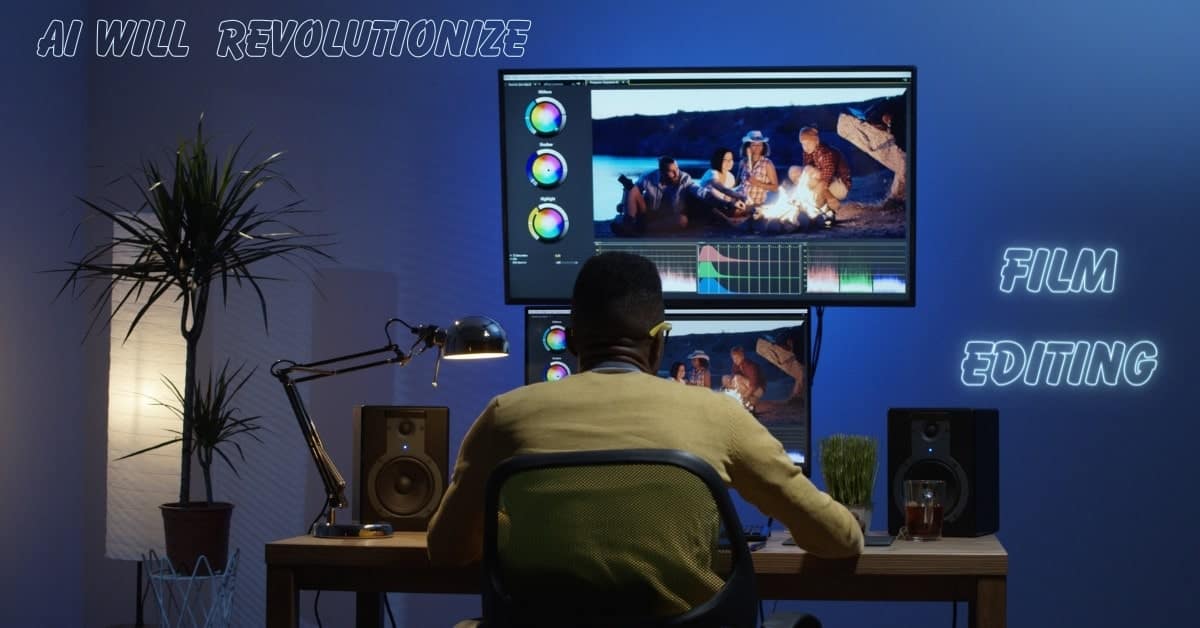
3. AI Will Support Filmmakers During Filming
AI will not only help filmmakers in the pre and post-production but will also aid them during the shooting process.
In the future, AI is set to streamline actor tracking, enhance performance capture, and simplify real-virtual character interactions.
It will quickly analyze footage, enabling efficient editing and best-shot selection based on genre preferences and metrics, ultimately uplifting the quality and creativity of filmmaking.
4. AI Will Aid Film Composers In Music Creation
In the future, AI will play a crucial role in aiding film composers. It will generate low-cost, customizable scores, providing filmmakers with abundant creative options.
AI music tools will be cost-effective, enhancing sound quality and production value on tight budgets.
Using reinforcement learning, AI will craft adaptive music patterns tailored to movie genres and scenarios, supporting composers in creating original film compositions.
5. AI Will Make Casting Process a Breeze
In the near future, Artificial Intelligence (AI) is poised to transform casting in the film industry, simplifying the process in various ways:
- Facial Matching: AI will easily find actors based on specific descriptions and criteria.
- Emotion Capture: It will capture actors’ natural expressions for roles with different emotions.
- Optimal Choices: AI will help select the best cast and crew based on box office performance, awards, and audience demographics.
AI’s future role in casting promises a more efficient, simpler, and creative approach to filmmaking.
6. AI Will Boost the Distribution and Promotion of Movies
In the future, AI will transform how movies reach audiences.
- AI will analyze vast data, including social media and viewer information, helping filmmakers tailor content and refine marketing strategies.
- AI will recommend films to viewers based on their preferences, boosting engagement.
- AI will predict a film’s success using social media buzz, trailer feedback, and reviews, thereby increasing distribution strategies.
This technology will ensure that films reach the right audience, fundamentally changing how the industry promotes and distributes movies.
7. AI Will Assist Screenwriters
In the future, AI will revolutionize screenwriting.
Advanced AI tools will offer essential support to writers, enhancing efficiency and organization. They will utilize natural language processing to suggest dialogue and create detailed character profiles.
Furthermore, AI-based software will analyze extensive datasets, including books, scripts, and movies, generating plotlines and characters. While AI-generated scripts may lack the depth of human creativity, they will serve as valuable starting points, fostering innovation in filmmaking.
Additionally, AI algorithms will provide script analysis, identifying uncertainties, questions, and suggestions, further facilitating the filmmaking process.
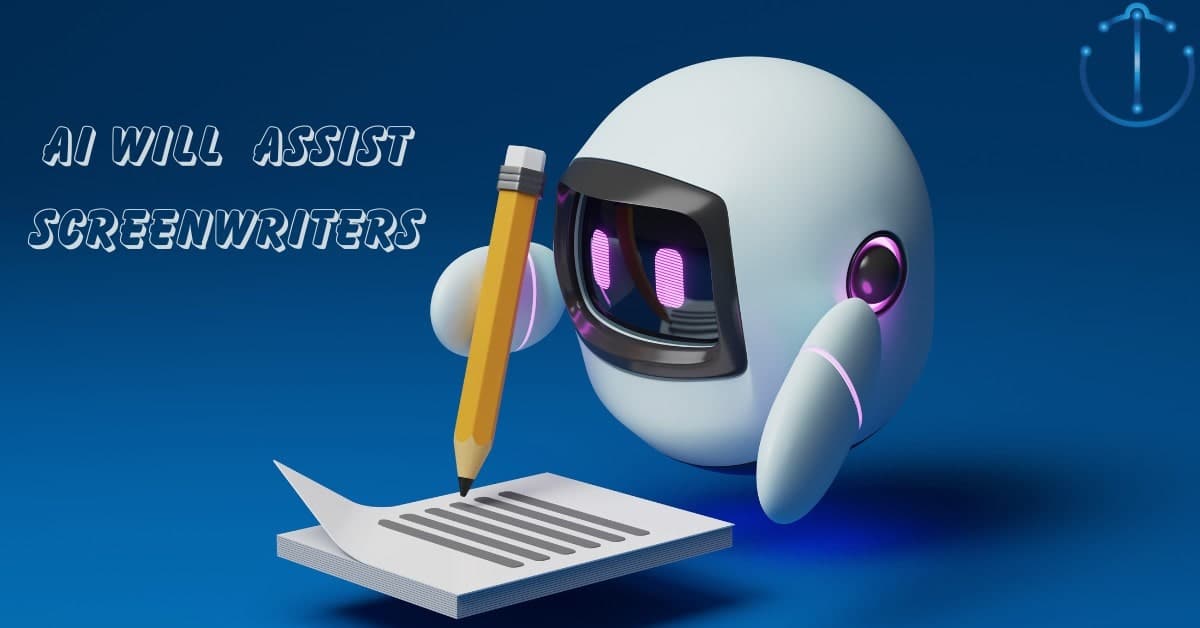
LEARN MORE: Will ChatGPT Replace Writers in the Future?
8. AI Will Augment Cinematography
In the future, AI will enhance cinematography, making visual storytelling even more captivating.
AI will handle complex camera movements, optimize angles, lighting, and composition, and suggest adjustments for better shots. This will help cinematographers and directors create stunning scenes efficiently.
AI will also assist in selecting the best takes, freeing up directors’ time. AI-powered cameras and drones will adjust exposure, focus, and framing in real time, ensuring the desired visual aesthetics are achieved.
9. AI Will Offer Valuable Assistance to Film Directors
In the future, AI will provide invaluable support to film directors:
- AI will create virtual sets, aiding scene visualization, and pre-filming decisions on camera angles and lighting.
- AI-driven 3D mock-ups will assist in planning scenes.
- It will generate storyboards, saving time and enhancing communication.
- AI will aid in budget estimation and project scheduling for smoother production.
- It will suggest script improvements for a more engaging storyline.

10. AI Will Improve Coloring Grading
In the future, AI will make color grading easier and more efficient for filmmakers.
AI will quickly analyze scenes and apply colors during post-production. It will also offer various effects like lighting, movement simulation, and 3D animations, all in less time than traditional methods.
AI tools, with machine learning capabilities, will streamline color balancing, shot grouping, reference creation, and color matching across cameras, saving filmmakers time and effort.
11. AI Will Enhance Visuals in the Film Industry
AI is set to introduce a new era of visual storytelling in the film industry. Filmmakers will utilize AI’s power to create astonishingly realistic worlds and characters, surpassing the limitations of traditional methods.
For instance, Netflix’s 2023 live-action adaptation of ‘One Piece’ showcases how AI is making the once-unthinkable possible, pushing the boundaries of what can be achieved in film.
As AI continues to evolve, we can only imagine the boundless possibilities that will become more attainable in the coming years, turning what was once impossible into cinematic reality.

12. AI will Enhance Efficiency and Foster Creativity
AI is poised to revolutionize filmmaking, enhancing efficiency and nurturing creativity.
Traditional methods are time-consuming and costly, but AI will streamline processes, reducing production times and budgets.
It will automate repetitive tasks like editing and special effects, allowing filmmakers to concentrate on storytelling.
This accessibility will empower emerging talents and cultivate a more diverse film industry. AI will unlock new creative horizons, facilitating innovative storytelling and collaborative opportunities.
Important Note
It’s important to note that AI is already making waves in the film industry. Many of the things mentioned above are already happening.
Tools like Sudowrite are assisting writers, enhancing efficiency, and organization. Colourlab AI ensures smart shot matching, while Amper AI is helping film composers create original music.
This blog envisions a more advanced and efficient use of AI in the industry, propelling its success and amplifying creativity in filmmaking.
Conclusion
From understanding audiences better to creating innovative effects, AI is shaping the future of cinema.
It will empower filmmakers to craft unseen visuals and find the perfect music, offering unique opportunities for creators and enhancing our cinematic experiences.
Embracing AI will be key for filmmakers to stay ahead while maintaining their creative edge.
Frequently Asked Questions (FAQs)
What impact will AI have on film editing?
AI will revolutionize film editing by automating tasks like shot selection, color grading, and visual effects. It makes post-production more resourceful and cost-effective.
Are there any AI tools currently used in the film industry?
Yes, there are AI tools in use today. For example, Sudowrite aids writers, Colourlab Ai focuses on smart shot matching, and Amper AI assists in music composition.
Will AI replace human filmmakers in the future?
AI is a valuable tool that enhances filmmaking processes, but it won’t replace human creativity and decision-making. Filmmakers will continue to play a central role.
What is the future of AI in the film industry?
The future of AI in the film industry is promising. It will lead to more efficient production processes, cost-effective solutions, and innovative storytelling techniques, ultimately enhancing the cinematic experience for audiences worldwide.
Can AI take over the film industry?
While AI is revolutionizing various aspects of the film industry, it’s unlikely to completely take over. AI serves as a valuable tool to enhance efficiency and creativity, but the human touch in filmmaking, from storytelling to directing, remains irreplaceable.
Will AI replace Hollywood?
AI won’t replace Hollywood but will become an integral part of it. Hollywood will continue to thrive as a hub of creativity, and AI will aid in various processes, making them more efficient and cost-effective.
Will AI replace screenwriting?
AI won’t replace screenwriting entirely, but it will assist screenwriters. AI can generate character profiles, suggest dialogue, and streamline the writing process. It enhances efficiency and creativity but doesn’t replace the unique storytelling abilities of human screenwriters.

